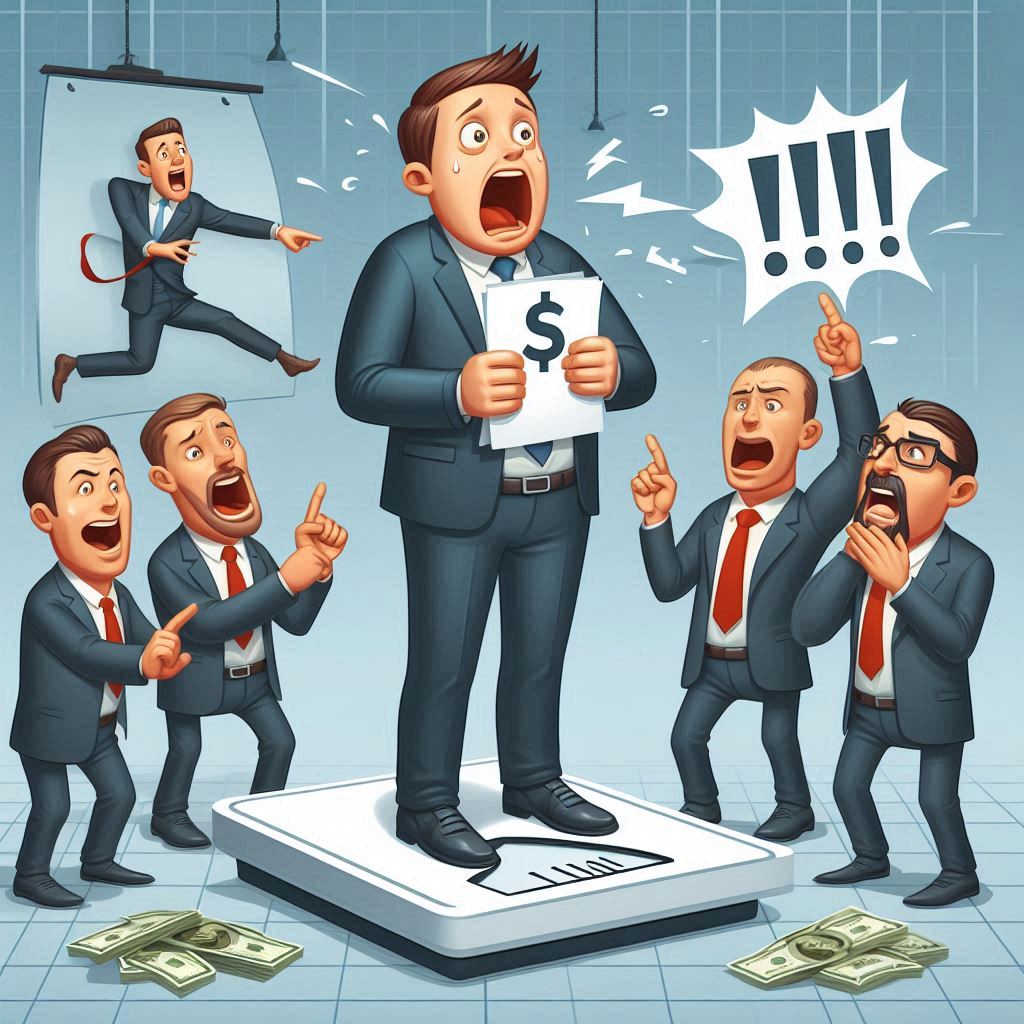Many business owners have an inflated view of their company’s worth. The truth is, your business is only worth what someone is willing to pay for it, and that might not be as much as you think. However, by understanding and leveraging key factors, you can significantly increase your business’s value, making it more attractive to buyers.
Imagine this: If your business generates $1 million per year, selling it at 5 times earnings instead of 4 means a $5 million sale versus $4 million. That’s a $1 million difference! Increasing your business’s value involves a mix of quick wins and tough challenges, but the potential reward is enormous.
Pro Tip: The best time to start increasing your business’s value is when you start the business—not when you’re ready to exit. If you have specific questions or need advice, reach out to a business consultant. With over 25 years of experience as a CEO, President, and General Manager in various industries, I’ve been involved in multiple transactions, both successful and not, as a buyer and seller.
What Defines Business Value?
Business value is determined by what someone is willing to pay. Several factors influence this, including profitability, cash flow, market potential, and the type of buyer. Here’s a look at the fundamentals that drive business valuation:
1. Profitability
Profitability is usually expressed through three main metrics:
- Net Income: Calculated as Gross Income minus Total Expenses, including interest, taxes, and operating expenses.
- EBITDA (Earnings Before Interest, Taxes, Depreciation, and Amortization): A key measure of operational performance that adds back non-operational expenses like depreciation.
- Seller’s Discretionary Earnings (SDE): Particularly important in valuing owner-operated businesses.
Companies with low margins are riskier because they don’t generate significant profit from large sales. For example, consider a drywall company with $20 million in revenue but only a 5% EBITDA margin. With high fixed costs, such businesses face substantial financial strain even with moderate sales fluctuations.
Quick Tip: Review expenses regularly and eliminate unnecessary costs. Look at service contracts, software licenses, and seat-based subscriptions. Make sure you’re only paying for what you truly need.
2. Cash Flow Management
Cash flow is crucial to running a business, and it’s one of the primary ways to measure your performance. Key elements include Days Sales Outstanding (DSO) and Days Payables Outstanding (DPO).
Example: Suppose your supplier offers 30-day payment terms, but you offer your customers 45 days to pay. This means you must cover at least 20 days of expenses before receiving customer payments. Ideally, aim to have 3-6 months of expenses in cash reserves.
Ways to Improve Cash Flow:
- Offer credit card payments with early pay discounts (consider transaction fees if your margins are low).
- Negotiate extended payment terms with suppliers.
- Reduce raw material inventory by optimizing order frequency.
3. Products and Services
How unique is your product or service? Are there high barriers to entry, or is your market flooded with competitors? These factors heavily influence value.
- Scarcity: Being first to market or offering something unique can drive demand. To enhance your market presence, focus on:
- Social Media: Build a strong brand to engage customers.
- SEO: Regularly update your website with relevant content to stay visible in search engines.
- Customer Reviews: Ask satisfied customers for reviews to build credibility.
- Strategic Partnerships: Collaborate with complementary businesses to expand your reach.
- Barriers to Entry: High startup costs or specialized equipment make it harder for competitors to enter the market. Businesses with lower barriers, like retail, face more competition and potentially lower valuations.
- Profit Margins: Margins vary by industry but aim for a gross margin of at least 45%. Low margins mean increased competition and higher advertising costs, which can negatively impact your valuation.
4. Owner Involvement
How replaceable are you? If the business depends heavily on you, it’s less attractive to buyers. Ideally, your business should run independently of your daily involvement.
5. Sales Growth
Consistent sales growth is a strong indicator of future potential and is highly attractive to buyers. Make sure you have a solid sales and marketing plan that you’re actively executing.
Growth Potential: Buyers seek businesses with clear growth opportunities. If growth is stagnant, buyers will need to rely on cost-cutting to achieve ROI, which is riskier.
6. Market Potential
- Addressable Market: The larger your potential customer base, the higher the value of your business. Expand by adding products/services or selling online.
- Competition: High competition can erode your market share. Focus on differentiating yourself through unique products, superior customer service, or innovative solutions.
7. Understanding Buyers
Different types of buyers evaluate businesses differently:
- Private Buyers: Most common but often offer lower valuations due to the need for financing.
- Strategic Buyers: May pay more due to potential synergies and cost savings.
- Private Equity Firms: Interested in foundational or bolt-on acquisitions as part of a larger strategy.
Key Takeaways
- Start Early: Begin preparing your business for sale long before you’re ready to exit.
- Focus on Easy Wins: Don’t try to tackle everything at once; start with the most manageable improvements.
- Seek Expert Help: There are experts who can guide you through the process, often with benefits that far outweigh the costs.
Understanding these fundamentals will help you make strategic decisions that increase your business’s value, leading to a more profitable exit when the time comes. If you need help or have specific questions, my consulting services offer the resources and expertise to maximize your business’s potential.
Frequently Asked Questions: Business Valuation
What factors determine a business’s value?
The main factors that determine a business’s value include profitability, cash flow, products or services offered, the owner’s involvement, sales growth, market potential, and the types of potential buyers. Each of these elements contributes to the overall attractiveness and financial health of the business.
How is business profitability measured for valuation purposes?
Business profitability for valuation is typically measured using Net Income (Gross Income minus Total Expenses) and EBITDA (Earnings Before Interest, Taxes, Depreciation, and Amortization). For seller-run businesses, Seller’s Discretionary Earnings (SDE) is also considered.
What is a good EBITDA margin for a business?
Generally, an EBITDA margin over 15% is considered good for most businesses. However, this can vary by industry, so it’s important to compare your margin to industry benchmarks.
How can I improve my business’s cash flow?
You can improve cash flow by allowing early payment by credit card, offering early payment discounts, negotiating extended terms with suppliers, and optimizing inventory management. These strategies can help balance your Days Sales Outstanding (DSO) and Days Payables Outstanding (DPO).
Why is owner involvement important in business valuation?
High owner involvement can negatively impact business value. If the business heavily relies on the owner for day-to-day operations, it may be less attractive to potential buyers. Ideally, a business should be able to operate smoothly without the owner’s constant presence.
How does sales growth affect business value?
Consistent sales growth is very important to potential buyers. It demonstrates the business’s potential for future success and can significantly increase its value. Buyers often look for businesses with a clear sales and marketing plan that’s being effectively executed.
What types of buyers typically purchase businesses?
The three main categories of business buyers are private buyers, strategic buyers, and Private Equity (PE) firms. Each type of buyer may value a business differently based on their investment goals and strategies.
How can I increase my business’s value before selling?
To increase your business’s value, focus on improving profitability, optimizing cash flow, strengthening your product or service offering, reducing owner dependency, driving sales growth, expanding your market potential, and making your business attractive to different types of buyers.
When should I start thinking about my business’s value?
Ideally, you should start considering your business’s value from the moment you start your business. However, it’s never too late to begin. Implementing value-increasing strategies well before you’re ready to exit can significantly boost your eventual sale price.
Do I need professional help to value my business?
While you can take many steps to understand and improve your business’s value on your own, seeking professional help can be beneficial. Experts can provide insights into industry-specific valuation methods, identify areas for improvement you might have missed, and help you implement strategies to increase your business’s value.





